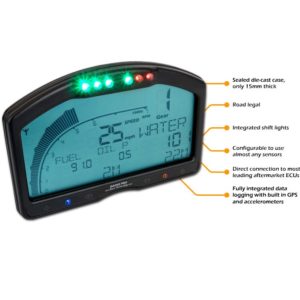In this fast-paced digital age, the collection and analysis of data have become increasingly vital. Whether you're an environmental scientist, an engineer, or a researcher, having access to accurate and reliable data is crucial for making informed decisions. Enter the data logger, a powerful tool that allows for the automatic collection of data in various settings.
But with so many options available in the market, how do you choose the right wireless high speed data logger for your needs? Don't worry; we've got you covered! In this ultimate guide, we will provide you with all the information you need to make an informed decision.
What is a Data Logger?
Before we dive into the nitty-gritty details of choosing a data logger, let's start with the basics.
A data logger is a compact electronic device that is capable of recording various types of data, such as temperature, humidity, pressure, and more. It typically consists of sensors, a storage medium, and a microprocessor. Data loggers are used in a wide range of applications, including environmental monitoring, scientific research, industrial processes, and quality control.
Factors to Consider When Choosing a Data Logger
- Accuracy and Measurement Range
When selecting a data logger, the most critical factor to consider is accuracy. You need to ensure that the data logger can provide accurate measurements for your specific needs.
Additionally, consider the measurement range of the data logger. Different applications require different measurement ranges, so it's essential to choose a data logger that can accommodate your requirements.

- Sensor Compatibility
The sensor compatibility of a data logger is another crucial aspect to consider. Ensure that the data logger you choose can interface with the specific sensors you need for your application.
Some data loggers come with built-in sensors, while others can connect to external sensors. Evaluate your requirements and choose a data logger that offers the necessary sensor compatibility.
- Data Storage Capacity
The amount of data a logger can store before reaching its capacity is an important consideration. Data storage capacity varies among different data loggers, so it's essential to choose one that can handle your data collection needs.
Consider the frequency and duration of your data collection and choose a logger with sufficient storage capacity to accommodate your data.
- Battery Life and Power Options
Since data loggers are often used in remote or inaccessible locations, battery life is a crucial factor to consider. Ensure that the data logger has a long enough battery life to sustain your data collection requirements.
Additionally, consider the power options available for the data logger. Some loggers can operate on replaceable batteries, while others can be charged via USB or external power sources. Choose a data logger with power options suitable for your specific application.
- User Interface and Software Compatibility
The user interface and software compatibility of a data logger can significantly impact ease of use and data analysis. Choose a data logger with a user-friendly interface and intuitive software.
Ensure that the data logger's software is compatible with your computer operating system and can seamlessly transfer data for further analysis and visualisation.
- Durability and Environmental Considerations
Depending on your specific application, durability and environmental considerations may be vital. If you plan to use the data logger in extreme conditions or harsh environments, choose one that is rugged and can withstand the elements.
Consider factors such as waterproofing, temperature resistance, and shock resistance to ensure the data logger can withstand the conditions it will be exposed to.
Conclusion
When it comes to choosing the right data logger, it's important to consider factors such as accuracy, sensor compatibility, data storage capacity, battery life, user interface, and durability. By carefully evaluating your requirements and considering these factors, you can select a data logger that meets your needs and provides accurate and reliable data.
Remember, the data logger is a powerful tool that can enhance your data collection and analysis capabilities. So, whether you're conducting scientific research, monitoring environmental conditions, or optimising industrial processes, choosing the right data logger is a crucial step towards success.

No comments yet